Advancing computation: 4th U-M alum wins Turing Award
The Turing Award has honors the computer scientists and engineers who create the systems and underlying theoretical foundations that propel the information technology industry.
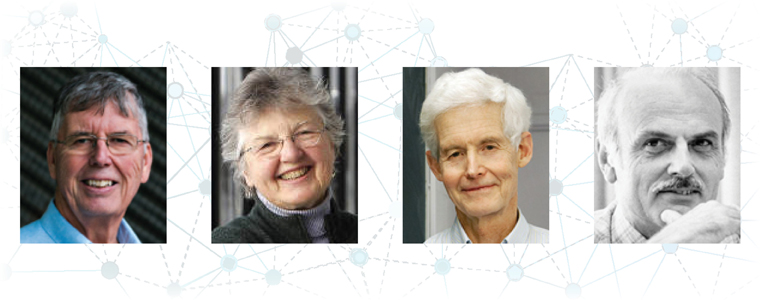
 Enlarge
Enlarge
The A.M. Turing Award, considered “the Nobel Prize of computing,” is given each year by the Association for Computing Machinery (ACM). With the recent announcement of Michigan alumnus Michael Stonebraker as the 2014 Turing recipient, we’d like to recognize Stonebraker and three other Michigan alumni – Frances Allen, Edgar Codd, and Stephen Cook – who are recipients of this honor, extending a legacy of impact by Michigan alumni on the field of computing.
The Turing Award is named for Alan M. Turing, the British mathematician who articulated the mathematical foundation and limits of computing, and who was a key contributor to the Allied cryptanalysis of the German Enigma cipher and the German “Tunny” encoding machine in World War II. Since its inception in 1966, the Turing Award has honored the computer scientists and engineers who created the systems and underlying theoretical foundations that have propelled the information technology industry.
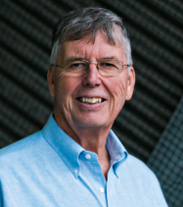
 Enlarge
Enlarge
Michael Stonebraker – 2014 Turing Award Winner
Michael Stonebraker (MSE EE ’66, PhD CICE ’71) received the Turing Award “for fundamental contributions to the concepts and practices underlying modern database systems.”
Stonebraker invented many of the concepts that are used in almost all modern database management systems and founded multiple successful database companies based on his pioneering work. While on the faculty at UC Berkeley from 1971-2000, he was the main architect of the INGRES relational database management system (DBMS), the object-relational POSTGRES DBMS, and the federated data system, Mariposa. Stonebreaker moved to MIT in 2001, where he has been an advocate of the “no size fits all” approach to database systems architecture and has developed database architectures for specialized purposes. In whole, Stonebraker’s work has been fundamental in enabling the “big data” industry.
Stonebraker’s PhD advisor at Michigan was Arch Naylor, who was on the faculty from 1960-1994. Stonebraker’s dissertation was entitled, “The Reduction of Large Scale Markov Models for Random Chains.”
Stonebraker is currently on the faculty at the Massachusetts Institute of Technology where he is an adjunct professor of computer science.
More information on Michael Stonebraker is available at the ACM website.
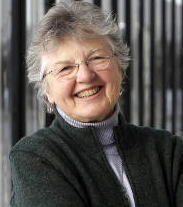
 Enlarge
Enlarge
Frances “Fran” Allen – 2006 Turing Award Winner
Fran Allen (MA Math ’57) received the Turing Award “for pioneering contributions to the theory and practice of optimizing compiler techniques that laid the foundation for modern optimizing compilers and automatic parallel execution.” She was the first woman to receive the Turing Award.
Allen intended to be a math teacher and enrolled at Michigan for a Master’s in Math. She took some of the earliest courses offered in computing and learned how to program an IBM 650 from Bernard Galler (a founding member of the Communication Sciences Department in 1965, which is a historical predecessor to CSE). She hired on with IBM at an on-campus interview with the goal of paying off her student loans and returning to teaching, but ended up staying with IBM for 45 years.
Allen’s achievements at IBM included seminal work in compilers, code optimization, and parallelization for systems including the first supercomputers and superscalar computers. She also had a role in intelligence work on programming languages and security codes for the National Security Agency. Allen became the first female IBM Fellow in 1989. In 2007, the IBM Ph.D. Fellowship Award was created in her honor.
As an IBM Fellow Emerita, Allen continues to advise IBM on a number of projects and has worked to encourage the involvement of other women in computer-related fields.
More information on Fran Allen is available at the ACM website.
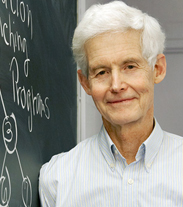
 Enlarge
Enlarge
Stephen Cook – 1982 Turing Award Winner
Stephen Cook (BS Math ’61) received the Turing Award “for his advancement of our understanding of the complexity of computation in a significant and profound way.”
His seminal paper, “The Complexity of Theorem Proving Procedures,”presented at the 1971 ACM SIGACT Symposium on the Theory of Computing, laid the foundations for the theory of NP-Completeness. The ensuing exploration of the boundaries and nature of NP-complete class of problems has been one of the most active and important research activities in computer science. To this day, the use of NP-completeness as a tool to understand computational difficulty spans virtually all areas of computer science.
Cook entered the University of Michigan in 1957. He was introduced to computer programming in a freshman course taught by Bernard Galler. With a fellow student, Cook wrote a program to test Goldbach’s conjecture that every even integer greater than two is the sum of two primes.
Cook is currently on the faculty at the University of Toronto where he is a professor of computer science and mathematics.
More information on Stephen Cook is available at the ACM website.
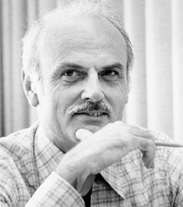
 Enlarge
Enlarge
Edgar “Ted” Codd – 1981 Turing Award Winner
The late Ted Codd (MS, PhD Cpt&Com Sc ’61, 65) received the Turing Award “for his fundamental and continuing contributions to the theory and practice of database management systems.”
Codd was an English computer scientist who, amongst other achievements, invented the relational model for database management while at IBM. This transformed the entire field of database development from an ad hoc series of specialized endeavors into a respectable scientific and academic discipline.
Todd’s PhD advisor was John Holland (who received the first PhD in computer science from Michigan and is on the faculty at Michigan today). Codd’s thesis, entitled “Cellular Automata,” represented a continuation and simplification of von Neumann’s work on self-reproducing automata; in it, Codd showed that the 29 states required by von Neumann’s scheme could be reduced to just eight and that it was possible to make a self-reproducing machine.
Codd died of heart failure on April 18, 2003, one day before his 80th birthday.
More information about Ted Codd is available at the ACM website.
 MENU
MENU 
